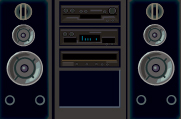By James Tew, director, iVendi
Sometime in the early 1980s, I bought my first ever semi-decent stereo from Comet. Or rather, my parents bought it for me. I spent an hour wiring it up in my bedroom, put some Simple Minds on the turntable, and lay back on the bed to listen. Bliss.
It was a very different world. Big, retail outfits such as Comet - like the motor dealer groups of the day - effectively controlled the way most goods reached consumers. The internet has changed that, of course, and is the central reason for Comet’s collapse. High Street electrical retailing has declined at a broadly inverse rate to the growth of online sales.
However, it is interesting to look at why Comet has fallen and its great rival Dixons has prospered, relatively speaking. In a nutshell, both retailers offered competitive pricing but Comet continued to channel most sales through their shops while Dixons adopted a dual strategy of investing in a strong online presence as well as underlining the advantages that remain in on-the-ground retailing by working to improve the customer showroom experience.
Do motor dealers have anything to learn from this? Some do, we believe. The first is that low pricing has become a given for consumers. For most dealers in most sectors, the cars and the services that you offer must be competitively priced for you to stay in the game.
The second is that you must ensure that your in-person customer experience is somewhere between very good and excellent. You can have attractive showrooms in strong locations – and Comet had many of these – but unless you invest in your staff and ensure that they are genuinely adding to the customer experience, you are not realising their potential value.
Finally, and most importantly, you must put genuine effort into your online activities. Simply having an attractive website that lists your stock and services is no longer enough. You should make your web site work for you in such as way that customers genuinely engage with your business online. It must improve the service they receive. Something that is essentially a brochure in a web browser format is not enough for the 21st century consumer.
Right, now where are my Simple Minds albums?


















Login to comment
Comments
No comments have been made yet.